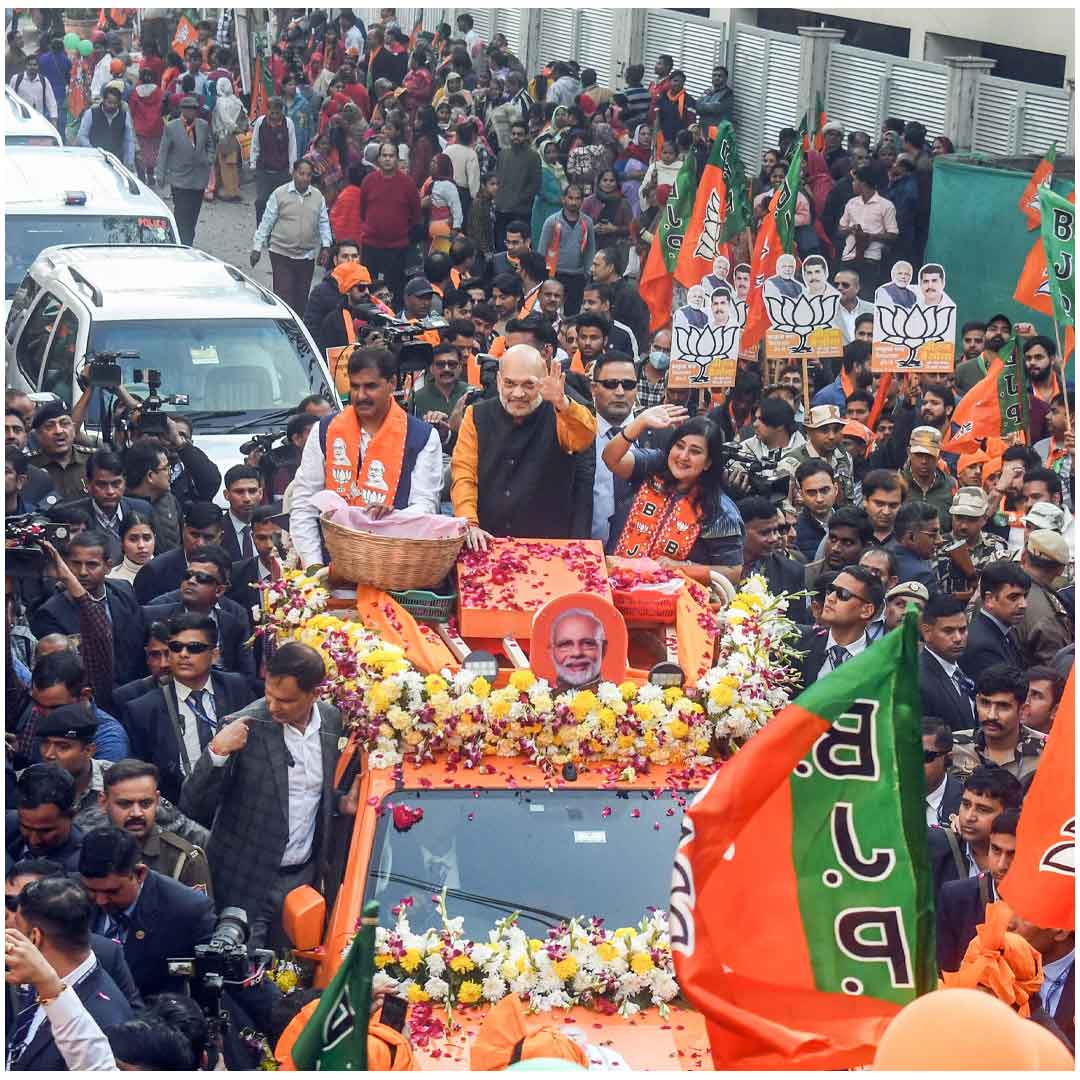Exit polls show BJP ahead in Delhi Assembly elections 2025 while AAP questions their reliability

The political landscape in Delhi is abuzz with discussions following the recent exit polls for the 2025 Assembly elections. These polls suggest a significant shift, with the Bharatiya Janata Party (BJP) poised to make a comeback after a 27-year hiatus. However, the Aam Aadmi Party (AAP), which has been at the helm for the past decade, is challenging the accuracy and reliability of these predictions.
Exit Poll Projections
Several exit polls have indicated a favorable outcome for the BJP. For instance, the P-MARQ exit poll forecasts the BJP securing between 39 to 49 seats, while the AAP is projected to win 21 to 31 seats. Similarly, the Matrize exit poll predicts a close contest, with the BJP expected to win 35 to 40 seats and the AAP 32 to 37 seats. On the more optimistic end for the BJP, the People's Pulse exit poll suggests a landslide victory, projecting the party to clinch 51 to 60 seats, leaving the AAP with a mere 10 to 19 seats.

These projections, if accurate, would mark a significant turnaround for the BJP, which has not governed Delhi since 1998. The party's resurgence is attributed to various factors, including strategic campaigning and capitalizing on the perceived anti-incumbency sentiment against the AAP.
AAP's Response and Skepticism
The AAP, led by Arvind Kejriwal, has expressed strong reservations about the exit poll results. Party leaders have been quick to remind the public of past instances where exit polls have misjudged their performance. Delhi Urban Development Minister Saurabh Bhardwaj stated, "We have fought three elections in Delhi, and this is the fourth assembly election we are fighting... 2013, 2015 exit polls had shown that we would be defeated. In 2020, we got more seats than shown by exit polls."
This skepticism isn't without precedent. In previous elections, exit polls have occasionally underestimated the AAP's appeal among Delhi's voters. The party's focus on welfare schemes, such as free electricity and water, as well as improvements in education and healthcare, has garnered significant support, especially among the lower and middle-income groups.
Historical Context and the Road Ahead
The BJP's potential return to power in Delhi would be a noteworthy development in the city's political history. The party has been out of the Delhi assembly for nearly three decades, with the AAP dominating the last two assembly polls. In the 2020 elections, the AAP secured a landslide victory, winning 62 out of 70 seats, while the BJP managed only eight.
However, the political dynamics have evolved since then. The AAP has faced challenges, including allegations of corruption against its leadership. Arvind Kejriwal himself was arrested on graft charges weeks before the general election began, a move he and his supporters labeled as a political vendetta by the Modi government. The BJP denies these charges.
The BJP, on the other hand, has been bolstering its appeal by addressing middle-class concerns and leveraging Prime Minister Narendra Modi's popularity. The recent federal budget, which included tax breaks for middle-income earners, was touted by Modi as the "most friendly for the middle class in India's history." This move is seen as an attempt to regain the confidence of urban voters in Delhi.
The Reliability of Exit Polls
Exit polls, by nature, are predictions based on surveys conducted immediately after voters cast their ballots. While they aim to provide an early indication of the election outcome, their accuracy can vary. Factors such as sampling errors, respondent honesty, and the dynamic nature of voter behavior can influence results.
https://twitter.com/lakshaymehta31/status/1887127595457925261
In India, the diversity of the electorate adds another layer of complexity. Cultural, economic, and regional differences can make it challenging to capture an accurate snapshot of voter sentiment through exit polls alone. Therefore, while exit polls can offer insights, they are not definitive and should be interpreted with caution.
Awaiting the Final Verdict
As Delhiites await the official election results, scheduled to be announced on February 8, both major parties are gearing up for the final outcome. The BJP is optimistic about ending its long absence from Delhi's governance, while the AAP remains confident in its track record and connection with the electorate.
In the end, it's the voters who hold the power to shape the city's future. Regardless of the exit poll predictions, the actual results will reflect the collective will of the people of Delhi. As always, the democratic process serves as a reminder that in politics, the only certainty is uncertainty until the final votes are counted.
Click to read the full article





